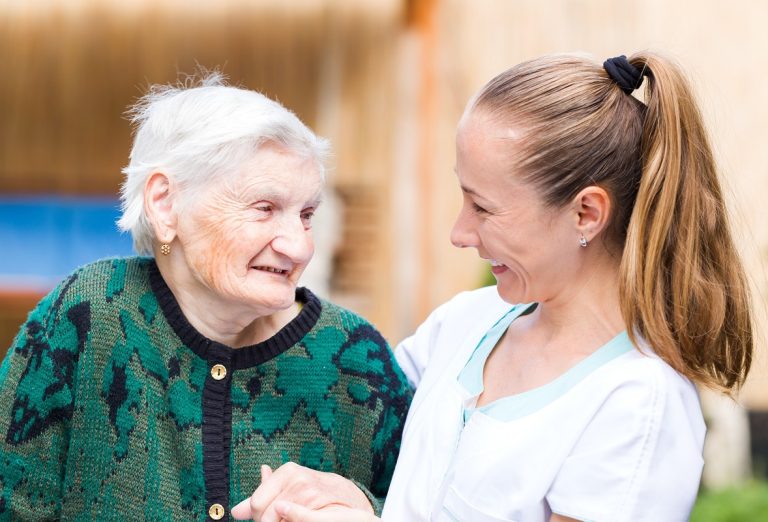- Dementia is a progressive neurological disorder affecting cognitive functions, including memory, language, and decision-making abilities.
- While commonly associated with older adults, dementia can affect people of all ages; the risk increases with age.
- Dementia can cause physical struggles, behavioral changes, loss of independence, nutritional deficiencies, and caregiver burnout in seniors.
- Key tips for managing dementia include seeking professional help, planning for the future, creating a safe environment, and using memory aids.
- Early intervention, professional help, and creating a safe environment can significantly improve the quality of life for those with dementia.
Dementia can affect seniors in many ways, not only regarding memory loss but also in their daily lives. It is not just limited to senior citizens, but it can also affect those who are young. It is a serious health condition that affects the lives of millions of people worldwide. Dementia is an umbrella term for various symptoms and illnesses that result in memory loss, language, and communication difficulties, and difficulty in performing everyday tasks. Here’s what you need to know about dementia, how to recognize the signs and symptoms, and how to cope.
What is Dementia?
Dementia is a progressive neurological disorder that adversely affects a person’s cognitive functions, including memory, thinking, language, and decision-making abilities. It is not a specific disease, but rather an umbrella term for various conditions that cause brain cells to degenerate and die faster than the normal aging process.
Who Does Dementia Affect?
While dementia is commonly associated with older adults, it can also affect younger people. However, the risk of developing dementia increases with age, and by the age of 65, one in ten people have some form of dementia. By the age of 85, this number rises to almost one in three people.
How Can It Affect Seniors?
Dementia can affect seniors in various ways. Here are some of those ways:

1. Physical Struggles
Dementia not only affects cognitive abilities but also physical abilities. Seniors living with dementia may face difficulties in daily activities like bathing, getting dressed, eating, and moving around. The physical limitations can make it difficult for seniors to live independently and can lead to falls, accidents, and injuries.
2. Behavioral Changes
People with dementia often exhibit behavioral changes like aggressiveness, agitation, apathy, and restlessness. They may also experience hallucinations, delusions, and paranoia. These changes can cause them to become hostile, aggressive, or withdrawn. They may refuse to cooperate or experience fluctuations in their moods.
3. Loss of Independence
Dementia affects memory and cognition, leading to a loss of independence for seniors. They may forget important dates, or events, or even face or have trouble with their daily routines. As symptoms progress, they may need help with routine tasks like cooking, cleaning, and personal hygiene. This loss of independence can be very challenging for seniors and their families.
4. Nutritional Deficiencies
As dementia affects the memory and cognitive abilities of seniors, they may forget to eat, take their medications, or even forget how to swallow correctly. This can result in severe nutritional deficiencies, resulting in weight loss, stomach problems, or malnutrition. A balanced diet is crucial for seniors living with dementia, and their meals must be prepared in a way that accounts for their changed abilities.
5. Caregiver Burnout
Taking care of a senior with dementia can be challenging, and it is not an easy job. Caregivers are responsible for their loved one’s daily routines and managing behavioral changes and health conditions. This can cause extreme stress and burnout for caregivers, affecting their mental and physical health.
Ways to Deal With Dementia
Here are some tips for managing dementia and helping seniors maintain their quality of life:

1. Seek Professional Help
If you suspect that your loved one may be showing signs of dementia, it is crucial to seek medical advice immediately. A professional diagnosis can help identify the specific form of dementia and guide treatment options. Additionally, it’s also essential to get professional care. A local home health care provider can assist with daily routines and provide medical support. They can also provide respite care to give caregivers a break.
2. Plan for the Future
As dementia is a progressive disorder, it’s essential to plan for the future while your loved one can still participate in decision-making. This includes discussing legal and financial matters, as well as end-of-life care preferences.
3. Create a Safe Environment
To prevent accidents and injuries, it’s crucial to create a safe environment for seniors living with dementia. This can include installing grab bars and non-slip mats in the bathroom, securing cabinets with locks or childproof latches, and removing potential hazards like loose rugs.
4. Use Memory Aids
Simple memory aids like calendars, medication organizers, and labeled drawers can help seniors with dementia remember daily tasks and routines. These aids can also help caregivers manage their loved one’s care more effectively.
Living with dementia can be tough for seniors and their caregivers, but with understanding, patience, and the right care, it’s possible to improve their quality of life. It’s important to take action early at the onset of symptoms, seek professional help, and provide a safe environment. Remember, you’re not alone in this journey – there are support systems available, and it’s crucial to leverage them.











